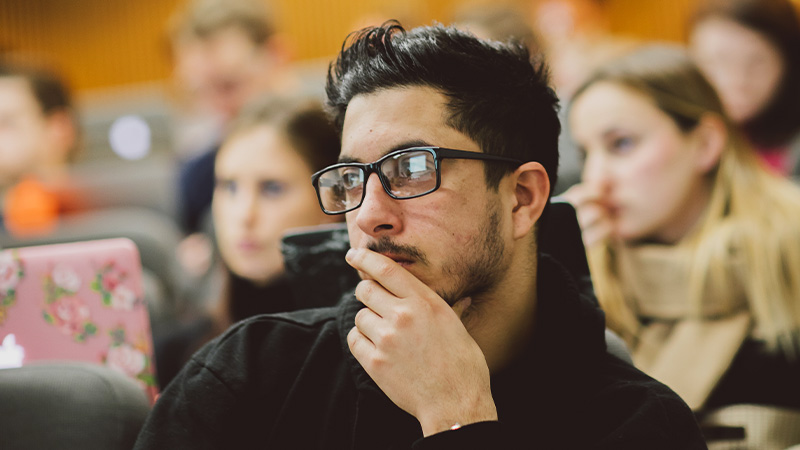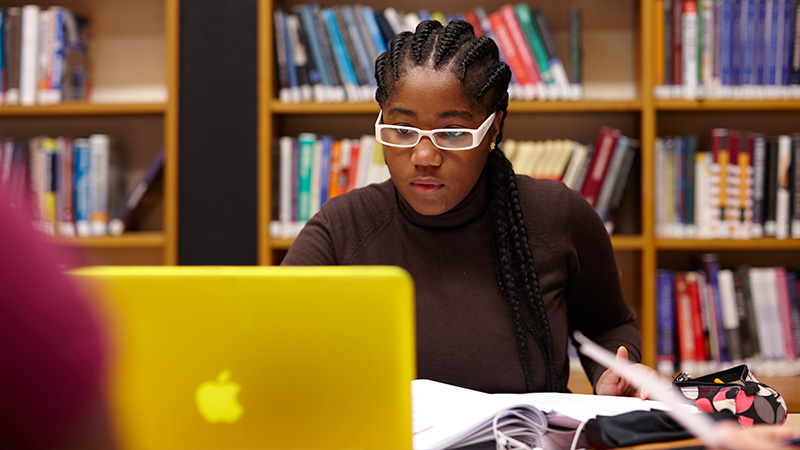Full time: PGCert: 4 months, PGDip: 9 months, MA: 12 months
Part time: PGCert: 2 semesters, PGDip: 3 semesters, MA: 24 months,
Location: Headington
Overview
Political turmoil. Changes in the concept of punishment. Beliefs about magical beings. History provides insight into the past to help us understand the present and to explore how the world has changed. Whether you’re a history enthusiast or a graduate looking for your next steps, our MA History will challenge your thinking and give you the freedom to explore.
You’ll begin with a core module to help you study effectively at postgraduate level and prepare for completing your dissertation. Then it’s up to you to pick from our options. You might look at areas that dominate the news, or maybe you’re eager to explore a certain time period.
Whatever you choose, you’ll learn from our leading researchers so what you learn will reflect the most recent developments in various historical fields.
You can expect one to one time and detailed feedback on your work. And there are often guest speakers on campus too. Recent speakers include, Gary Sheffield, military historian, author and History Channel contributor, and Lord Powell, foreign policy adviser to Prime Minister Margaret Thatcher.

Why Oxford Brookes University?
-
Small tutorial groups
Your voice will be heard in our close-knit, supportive learning environment. You’ll also have extensive tutor contact time to enable individual feedback on your work.
-
Freedom to explore
You can focus on your areas of interest through our wide choice of optional modules. Our subject specialists will support you to complete research for your dissertation.
-
Research-informed teaching
Our modules are informed by our research, bringing you up to date with the latest developments in the field with top-quality teaching from research-active historians.
-
Toolkit of skills
Returning to education? We've designed a module that will give you the skills you need to study at postgraduate level.
-
Flexible framework
Whether you study full-time or part-time, our classes take place in the evening, which can fit in with work and/or caring responsibilities.
Course details
Study modules
The modules listed below are for the master's award. For the PGDip and PGCert awards your module choices may be different. Please contact us for more details.
Please note: As our courses are reviewed regularly as part of our quality assurance framework, the modules you can choose from may vary from those shown here. The structure of the course may also mean some modules are not available to you.
Research
Our historians are regarded as experts in their field and their research informs some of the key debates in society.
Principal research areas in which our teaching staff specialise include:
- Early modern history
- History of religion from the Reformation onwards
- Health, medicine and society
- Social and cultural history
- History of art and visual culture
- History of crime, deviance and the law
- Modern political and international history
As well as meeting to discuss and analyse central texts in the field, each group undertakes a number of activities including organising work-in-progress seminars, and offering support and feedback for external grant applications.
The department boasts a wealth of research expertise and two important research centres:

Careers
With a combination of specialist knowledge and advanced training, you’ll graduate confident in your ability to research, write and develop your own work. This puts you in the ideal position to continue your academic study or kickstart your career in this area.
Students who have completed this course have secured a range of roles. A significant number decide to use their skills to inspire the next generation as secondary school history teachers.
You’ll be the perfect match for careers in:
- archive management
- law
- local government
- journalism
- the civil service
- the military.
Success in these sectors depends on excellent research and analysis skills, and you’ll be able to show employers that you tick all the boxes.
Student profiles
Our Staff
Professor Johannes Dillinger
Dillinger is mainly interested in early modern history. He is currently working on the history of early modern terrorism, the cult of relics and a microstudy of a border community between France and Germany.
Read more about JohannesProfessor Katherine Watson
To understand our criminal justice system, it is crucial to understand the long-running historical debate on the nature, incidence and causes of crime, as well as the way in which medicine has played an active part in shaping legal, political and social change. Dr Watson’s specialist teaching focuses on the origins of these foundations of modern legal practice, while her broader teaching considers the wider socio-political contexts within which these practices developed.
Read more about KatherineRelated courses
Entry requirements
Specific entry requirements
You should normally hold a minimum of a second class honours degree (2:2), or equivalent, in History or in a related subject.
If it is some time since you completed your undergraduate education and you do not meet the standard requirement, it may be possible to consider your application based on evidence of other relevant personal and professional experience and the support of your referees.
Please also see the University's general entry requirements.
English language requirements
If English is not your first language you will need to satisfy the university's English language requirements:
- IELTS 6.5 overall and including a minimum 6.0 in all components.
Please also see the University's standard English language requirements.
Pathways courses for international and EU students
We offer a range of courses to help you meet the entry requirements for your postgraduate course and also familiarise you with university life in the UK.
Take a Pre-Master's course to develop your subject knowledge, study skills and academic language level in preparation for your master's course.
If you need to improve your English language, we offer pre-sessional English language courses to help you meet the English language requirements of your chosen master’s course.
English requirements for visas
If you need a student visa to enter the UK you will need to meet the UK Visas and Immigration minimum language requirements as well as the University's requirements. Find out more about English language requirements.
Terms and conditions of enrolment
When you accept our offer, you agree to the Terms and Conditions of Enrolment. You should therefore read those conditions before accepting the offer.
International qualifications and equivalences
How to apply
Application process
Tuition fees
Questions about fees?
Contact Student Finance on:
Tuition fees
The following factors will be taken into account by the University when it is setting the annual fees: inflationary measures such as the retail price indices, projected increases in University costs, changes in the level of funding received from Government sources, admissions statistics and access considerations including the availability of student support.
How and when to pay
Tuition fee instalments for the semester are due by the Monday of week 1 of each semester. Students are not liable for full fees for that semester if they leave before week 4. If the leaving date is after week 4, full fees for the semester are payable.
- For information on payment methods please see our Make a Payment page.
- For information about refunds please visit our Refund policy page
Additional costs
Please be aware that some courses will involve some additional costs that are not covered by your fees. Specific additional costs for this course are detailed below.
Optional costs
| Additional costs | Amount (£) |
|---|---|
It’s your responsibility to cover print / binding costs where coursework submission is required. Please note that a lot of the coursework is now submitted online. |
From £30 |
| You may choose to purchase books to support your studies. Many books on our reading lists are available via the Library, or can be purchased secondhand. | £20-60 per book |
Accommodation fees in Brookes Letting (most do not include bills) |
£94-265 per week |
Accommodation fees in university halls (bills included, excluding laundry costs) |
£135-200 per week |
Graduation costs include tickets, gowning and photography. Gowns are not compulsory but typically students do hire robes, starting at £41. |
Typically £0-200 |
Students are responsible for their own travel to and from university for classes. For the 2025/26 academic year, the University is introducing an alternative subsidised travel offer for all students with further information on our Travel webpages. |
From £10 |
Funding your studies
Financial support and scholarships
Featured funding opportunities available for this course.
All financial support and scholarships
Programme changes:
On rare occasions we may need to make changes to our course programmes after they have been
published on the website. For more information, please visit our
changes to programmes page.

